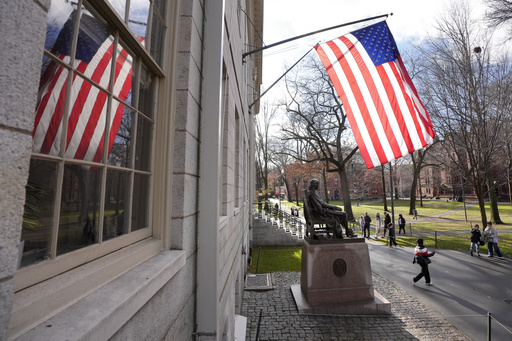
As congressional Republicans search for methods to reduce federal spending, discussions are surfacing regarding potential new taxes on college scholarships, an end to certain student loan repayment options, and a significant increase in tax rates affecting university endowments.
These proposals impacting higher education are among a variety of ideas currently being suggested by House committees looking for ways to finance the extension and enhancement of tax cuts that originated during President Donald Trump’s initial term.
While these recommendations are still in development, their likelihood of implementation remains unclear. Nonetheless, many advocates within the higher education sector express concern over the emergence and consideration of such initiatives by Republican lawmakers.
“I find it astonishing because these cuts aren’t being motivated by a fiscal emergency or a major recession,” stated Jessica Thompson, an expert in higher education policy at The Institute for College Access and Success. “This seems more ideology-driven than it does a response to an immediate need.”
A closer look reveals several possible federal budget reductions that could significantly impact higher education during the Trump administration:
Elimination of programs aiding students in repaying loans
Under discussions by the U.S. House Committee on Education and the Workforce, various potential reform measures for student loan programs could restrict student access to federal funding for their education.
One possible cut is to repayment plans like the SAVE plan established by the Biden administration. This plan currently allows borrowers earning less than 225% of the federal poverty level (around $32,800 for a single individual) to avoid payments and halts interest accrual if monthly payments are made. This initiative had already faced delays due to Republican objections. Other plans under review include those that place a cap on loan repayment amounts relative to borrowers’ income.
Additionally, there is a proposal to provide borrowers with more chances to recover from loan defaults. Presently, borrowers can rehabilitate their loans only once through a set number of consecutive payments. The proposed changes would allow them to go through this process a second time. The committee claims this could save the government substantial amounts, although they did not detail how such savings would be achieved.
The timeline for unveiling these proposals remains uncertain; they may be considered as soon as spring through a budget reconciliation process, enabling Republicans to push initiatives through Congress via party-line votes. However, navigating this in the House might be challenging, given the slim Republican majority.
Tax exemption removal for scholarships
Under current law, scholarships and fellowships are free from taxes if applied toward tuition and related expenses. A new proposal under consideration would change this dynamic.
Such modifications could impose additional financial stress on students and their families, according to advocates.
“We’ve made significant strides in lowering the costs associated with higher education. Adjusted for inflation, tuition at public universities is less than it was a decade ago,” mentioned Craig Lindwarm, the senior vice president of governmental affairs at the Association of Public and Land-Grant Universities. “However, as we examine these proposals, many appear to potentially escalate costs for students and families, steering us toward a scenario that is not desirable, which is increasing financial burdens.”
Raising taxes on university endowments
The Tax Cuts and Jobs Act currently levies a 1.4% tax on income derived from the endowments of select private nonprofit universities, which produced approximately $244 million in revenue from 58 institutions during 2022. The committee is proposing an increase of this rate to 14% and broadening the scope of colleges impacted by this tax.
Amid a myriad of other potential ideas, there are suggestions for imposing fines on institutions that contravene student rights as outlined in Title VI of the Civil Rights Act, which protects against discrimination. Typically, these investigations conclude with settlements requiring institutions to enhance training and policy improvements. Title VI is currently relevant in ongoing inquiries regarding accusations of antisemitism at colleges and universities nationwide.

